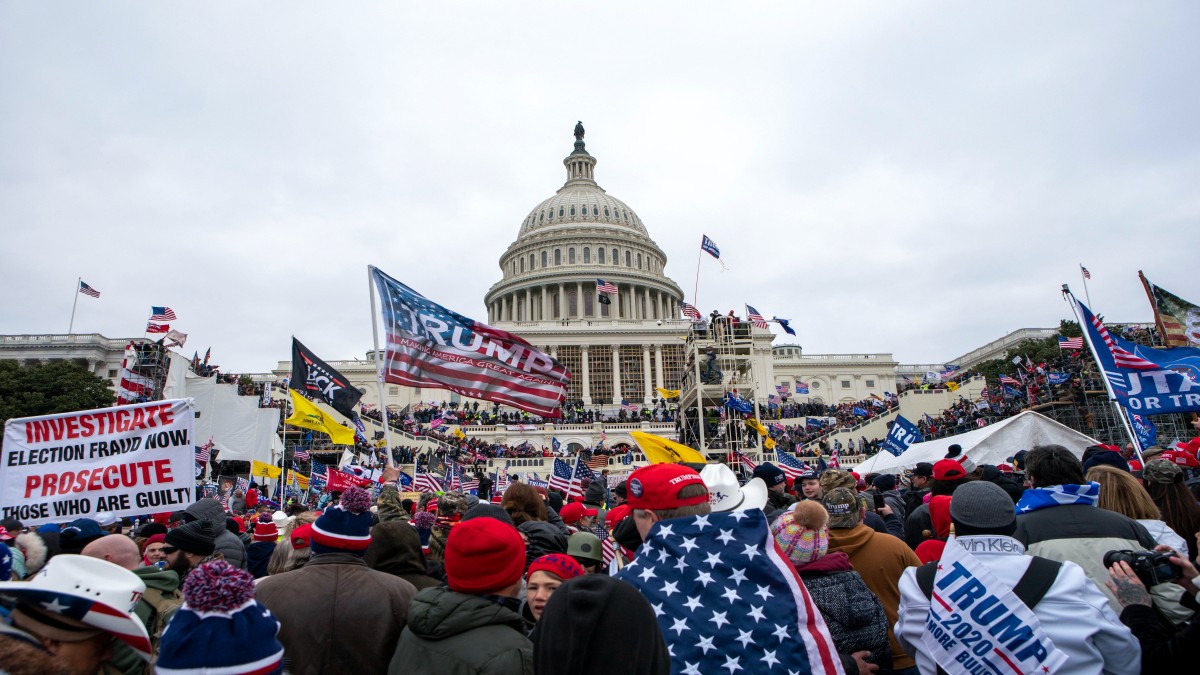
“It’s really unprecedented to see violent felons, convicted by juries for crimes witnessed by the entire world, walk free,” Officer Winston Pingeon of the Capitol Police, who was assaulted during the riots said
read more
President Donald Trump, in one of his first actions upon resuming office, signed an executive order granting a blanket pardon to those convicted in connection with the January 6, 2021, Capitol riots.
The decision resulted in the release of hundreds of individuals, including some serving lengthy sentences for violent offences.
“These people have already served years in prison, and they’ve served them viciously,” Trump said during a press conference at the White House on Monday (January 20). “It’s a disgusting prison. It’s been horrible. It’s inhumane. It’s been a terrible, terrible thing.”
While the move sparked jubilation among Trump supporters, Capitol security officials and lawmakers sharply criticised the pardons. The sweeping measure effectively cleared criminal records for nearly all rioters but stopped short of offering financial compensation.
‘A slap in the face’
For many Capitol security personnel, Trump’s decision was a painful setback. Officer Winston Pingeon of the Capitol Police, who was assaulted during the riots, called the pardons “a slap in the face.”
“It’s really unprecedented to see violent felons, convicted by juries for crimes witnessed by the entire world, walk free,” Pingeon told the BBC.
Speaker Emerita Nancy Pelosi, who had to hide from rioters during the insurrection, also condemned the move. “The president’s actions are an outrageous insult to our justice system and the heroes who suffered physical and emotional trauma while protecting the Capitol, the Congress, and the Constitution,” she said in a statement.
Pelosi added, “It is shameful that the president has decided to prioritise the abandonment and betrayal of police officers who risked their lives to stop an attack on the peaceful transfer of power.”
Celebration among supporters
Outside federal facilities, families and supporters gathered to cheer the release of the rioters. Chants of “freedom” echoed as former inmates emerged, many expressing gratitude toward Trump.
High-profile individuals such as Enrique Tarrio, leader of the Proud Boys, and Stewart Rhodes, founder of the Oath Keepers, were among those pardoned. Tarrio’s mother, Zuny, celebrated the decision on social media, writing, “Our president gave my son and all the J6ers their lives back! They can live again! Breathe fresh air again!”
Rachel Powell, who gained notoriety for using an ice axe to smash Capitol windows, said, “Thank you, Mr Trump,” as she left prison. “He’s a bigger blessing to me than I could ever imagine.”
Jacob Chansley, known as the “QAnon Shaman,” walked free after serving four years, expressing no regrets for his actions. “I regret nothing,” he told the BBC, adding that he plans to purchase firearms now that his record is clear.
Not all accept the pardon
While many embraced their release, some distanced themselves from Trump’s decision. Pam Hemphill, who served 60 days for her involvement in the riot, refused the pardon.
“We were wrong that day,” Hemphill said. “Accepting a pardon would insult the Capitol police officers, rule of law, and our nation.”
Hemphill, who pleaded guilty, said accountability should prevail. “We broke the law—there should be no pardons,” she added.
Trump’s decision to pardon nearly 1,500 individuals has reignited debate over accountability and justice in one of the most tumultuous episodes in recent US history. For some, it’s a victory for freedom; for others, a painful reminder of the attack on democracy.
With inputs from agencies


